Three days of enriching, full-immersion discussions with the ETH-TECH 1st Partners Meeting
We met in Padua for the first time in our project’s journey from January 22-24, immersing ourselves in a dynamic agenda designed to advance our creative work while establishing a shared foundation. Beyond making progress, we needed to align our diverse, pragmatic perspectives on the ethics of educational technology. To set the stage, we contrasted these viewpoints with a theoretical lens, guided by an inspiring talk from Prof. Federico Zilio (University of Padua).
From there, we delved into exploratory activities, raising more questions than answers but embracing the complexity of the field. Our discussions, brainstorming sessions, and forward-looking exchanges led us to “reorganise the field,” laying a strong foundation for what’s ahead—and the best is yet to come.
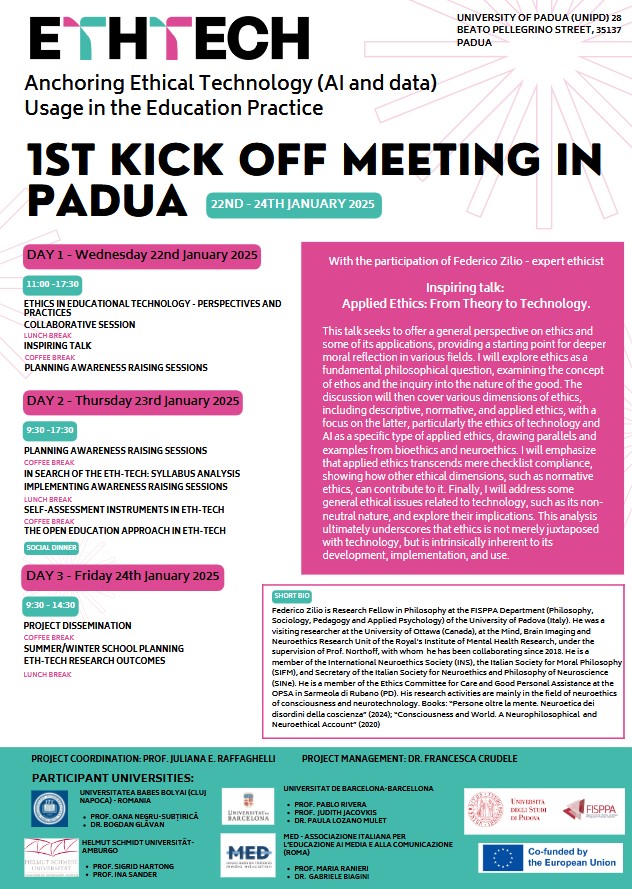
Day 1: Framing the Challenge
Twelve of us from four European countries (Germany, Italy, Rumania and Spain) and five institutions (see the poster above) gathered to navigate the intricate terrain of ethics in educational technology. The ETH-TECH project, their shared endeavor, sought to bridge the gap between ethical theory and tangible action in AI and data usage in education.
The first session started from considering of course the existing recommendations from EU, UNESCO, and the OECD, which have proposed ethical frameworks for AI and data in education. However, our mantra from the very beginning has been “Thinking ethically is not the same as doing ethically.” Many educators, despite their good intentions, often find themselves overwhelmed by techno-enthusiastic discourses that present digital transformation as inherently positive. Others challenged the notion that existing ethical guidelines are sufficient, emphasizing how platformization and datafication subtly push educators toward focusing on performance metrics rather than critical engagement with technology.
Therefore, our starting point was sharing our pragmatic perspectives on the ethical problems we identify, often times taking the form of dilemmas: openness vs. privacy; creativity vs. deskilling; efficiency vs. care; effectiveness vs. planet ruins. Have a look at our presentations below!
- 1 – Oana Negru, University Babes-Bolyai, “EdTech and a new Morality“
- 2 – Sigrid Hartong & Ina Sander, Helmut-Schmidt University, “What is Tech/AI ethics for us”?
- 3 – Pablo Rivera & Judith Jacovkis, University of Barcelona, “Ethical tensions in education and digital technology research”
- 4 – Juliana E. Raffaghelli, University of Padua, “Perspectives on the ethics of Edtech”
We ended our presentations plenty of questions about ethics overall. Therefore, we sought for a “real” philosopher, who contributed with foundational knowledge to our debate. We share his perspective below.
Federico Zilio, University of Padua, “Applied Ethics. From Theory to Technology”.
And here some pictures of us engaged in the debate!
Can you see the post-its populating the scene? That was a starting point: while presenting, started brainstorming about the pivotal terms characterising our perspectives.
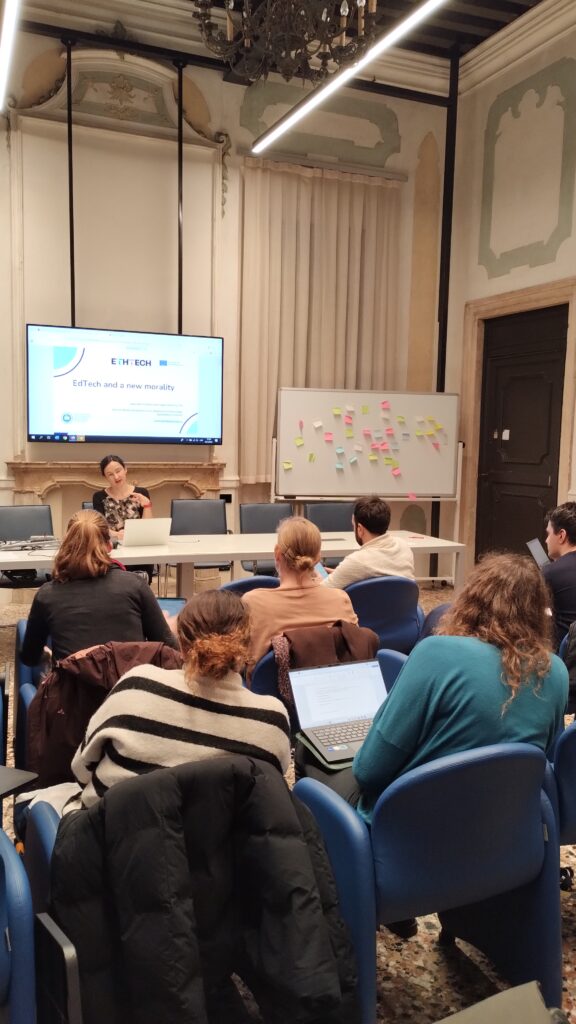
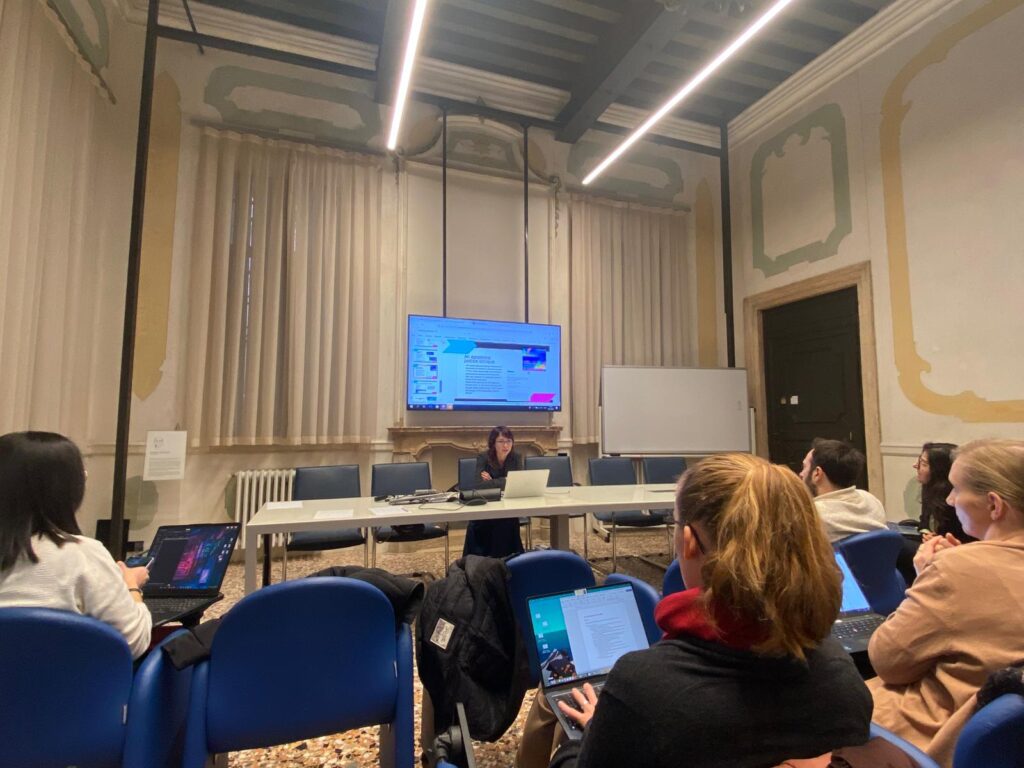
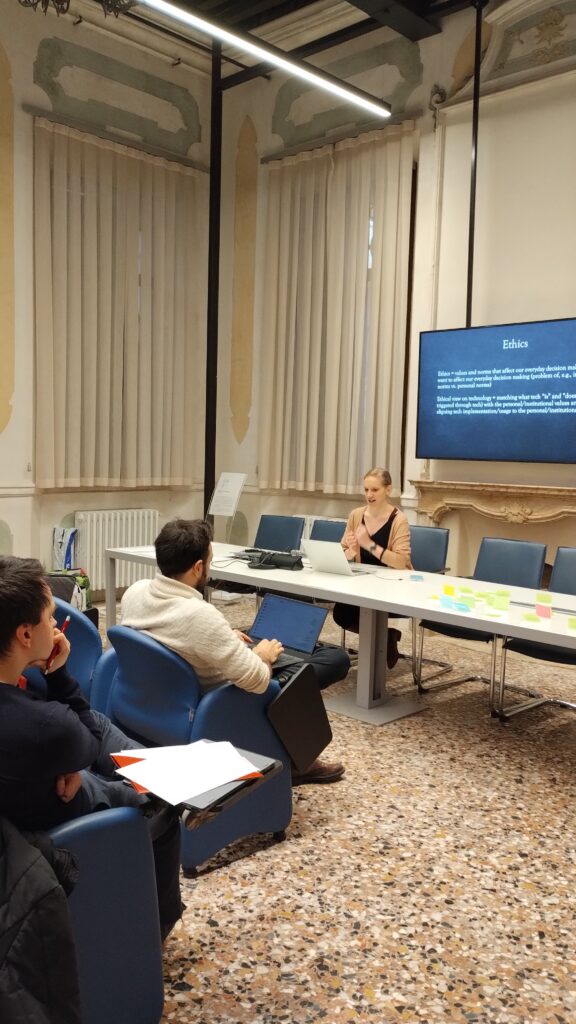
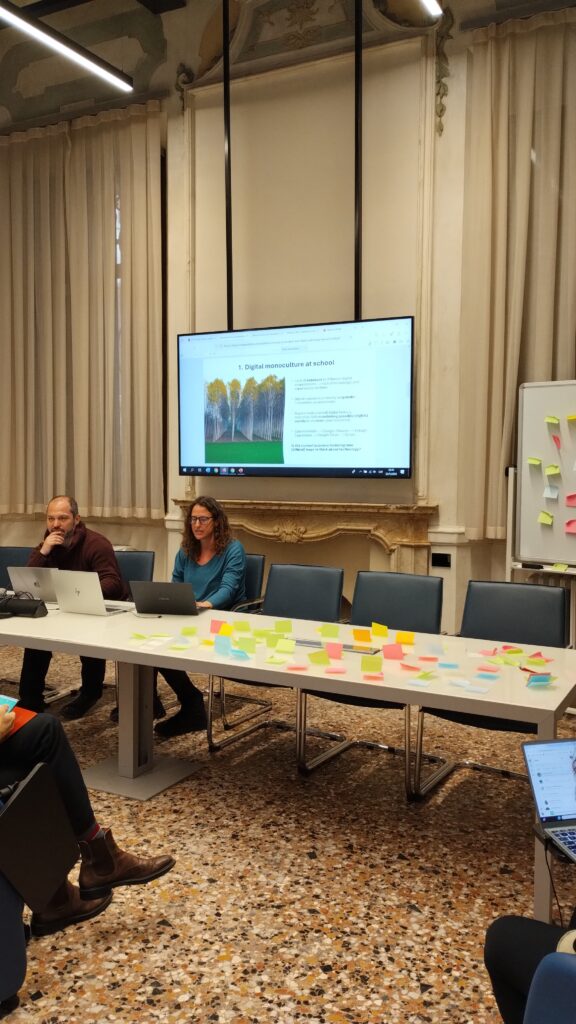
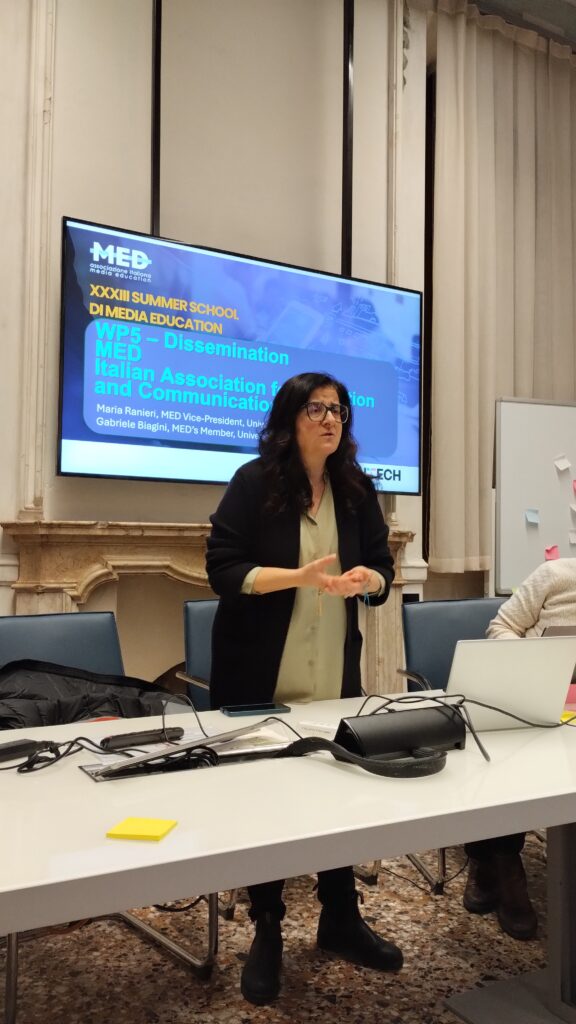
By the end of the day, a crucial dilemma had surfaced: educators are increasingly expected to act ethically, but often within frameworks that reduce ethics to mere compliance. The challenge was to move beyond rigid checklists and toward an ethics that is both situated and actionable.
Day 2: Mapping Ethics in Practice
With fresh perspectives from the previous day, the group turned to data. We delve into syllabi analysis (nearly 100 collected up to this meeting and this is just the beginning!) from education programs across our respective countries revealed critical results: ethical considerations were either absent or treated as a peripheral issue. Even when ethics was mentioned, it was often framed in abstract terms rather than as a lived practice. We need to dig deeper in this research since we are at the very beginning, but this material will be crucial to trigger reflection and practice transformation during sessions with students and academic teachers. A very simple point is that (also reflected in the literature we are dealing with), if syllabi are a public document, such a document should cater to all audiences (students, other academic teachers, admin staff, policy makers) crucial information about the way we deal with the ethics of educational technology in pre-service teachers and prospective educators’ training.
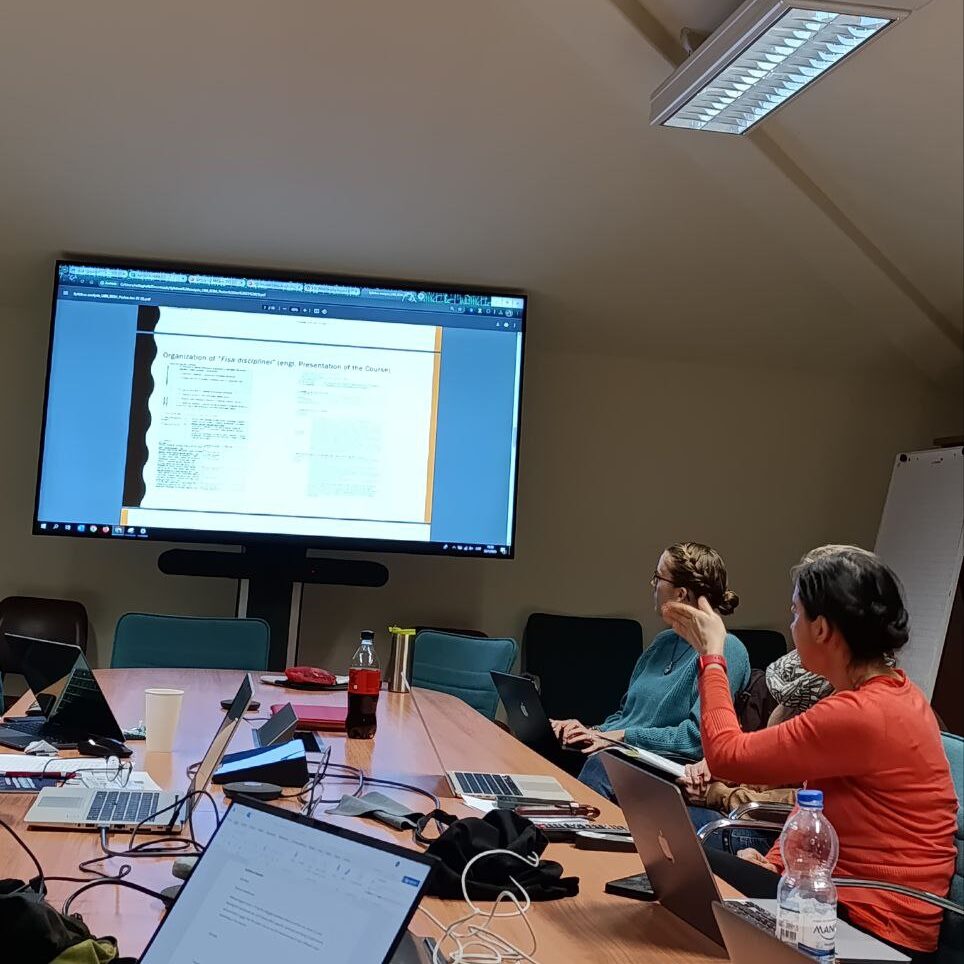
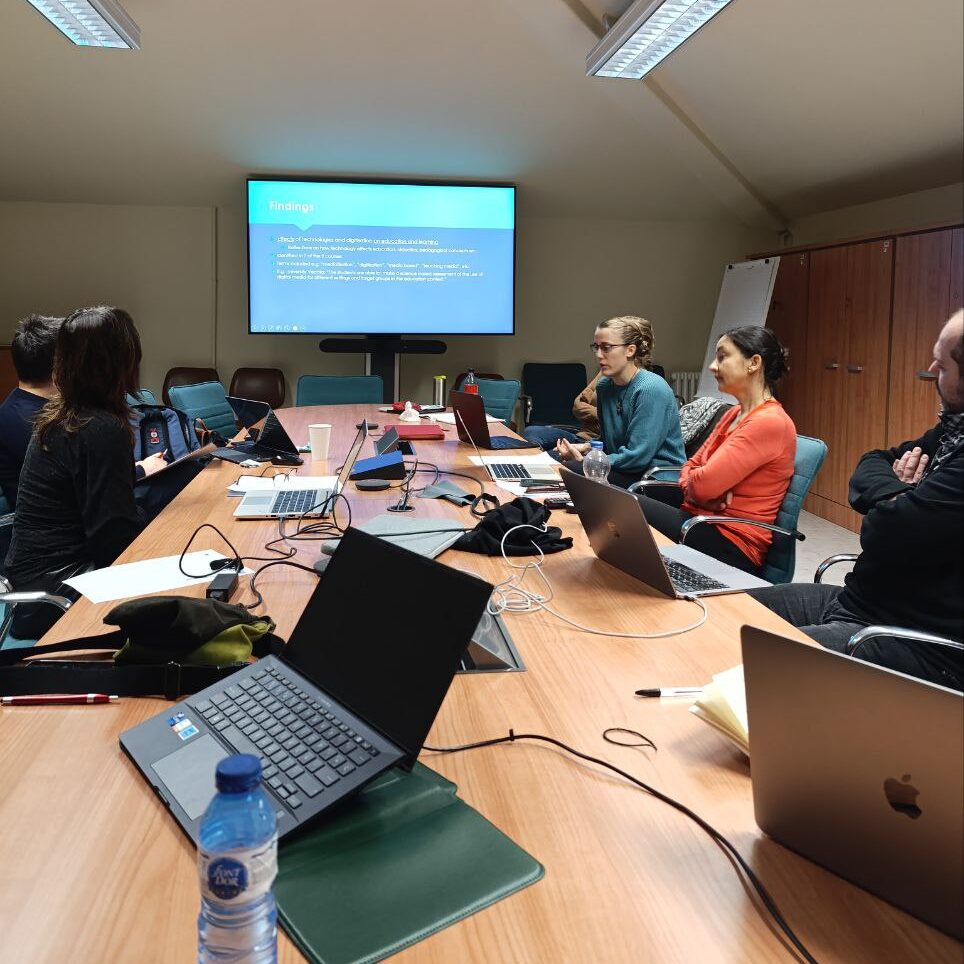
We hence moved to discussing Awareness Raising Sessions (ARS) as our first strategy to expand the circles of dialogue and reflection upon ethics in the technology mediated educational practice. These activities should be conducted in all four national contexts. The ARS should bring together professors and students to discuss their perceptions of ethics in educational technology, adopting the syllabi’s analysis and exploring AI usage (as practice): we will hence start from a sort of “Mind the Gap” activity. We discussed hence our concern about the actual levels of awareness about the ethics of edtech as a problem. Many participants might feel that that ethics is either too theoretical or too broad to be truly actionable. “We talk about ethics as if it’s a fixed set of rules,” we concluded and moved further, to envision the educational action: “but what if we considered it as a process—one that is constantly negotiated and redefined?”
By the end of the day, a key tension had been identified: while there is growing recognition of ethical issues in edtech, there is little guidance on how to navigate them in real educational settings. However, we had also came up with something even more powerful: an idea of ethics that enacts the educational intervention. Of course, we do not consider the “educational” as a synonymy of “teachable ethics”. We embrace an idea of educational as a force within an open and uncertain field, a direction, a contextualisation for educere (to draw out a person’s inherent potential) and formare (a constructive external influence shaping the character and connected capacities) or, in German terms, to enable Bildung.
Day 3: Envisioning Ethical Futures
The final day was dedicated to solutions. Building on their discussions, the group sketched out a framework that could move beyond static ethical principles and into dynamic, context-sensitive practices. Through our participatory brainstorming, we imagined how educators and students could engage in an ethics of inquiry.
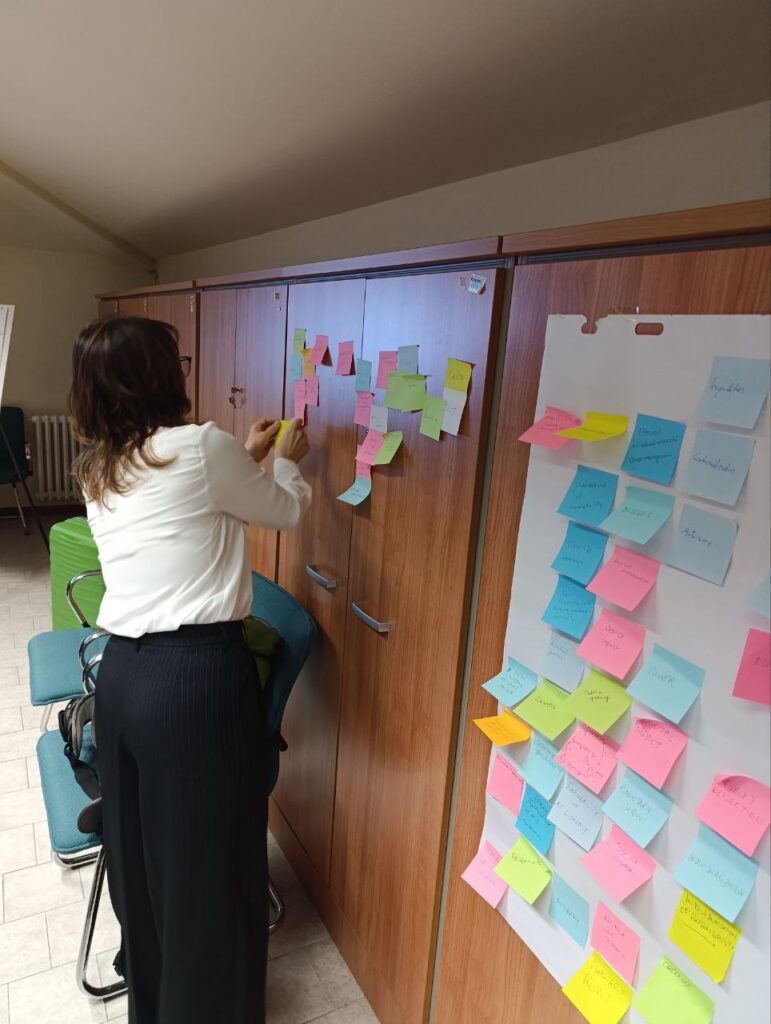
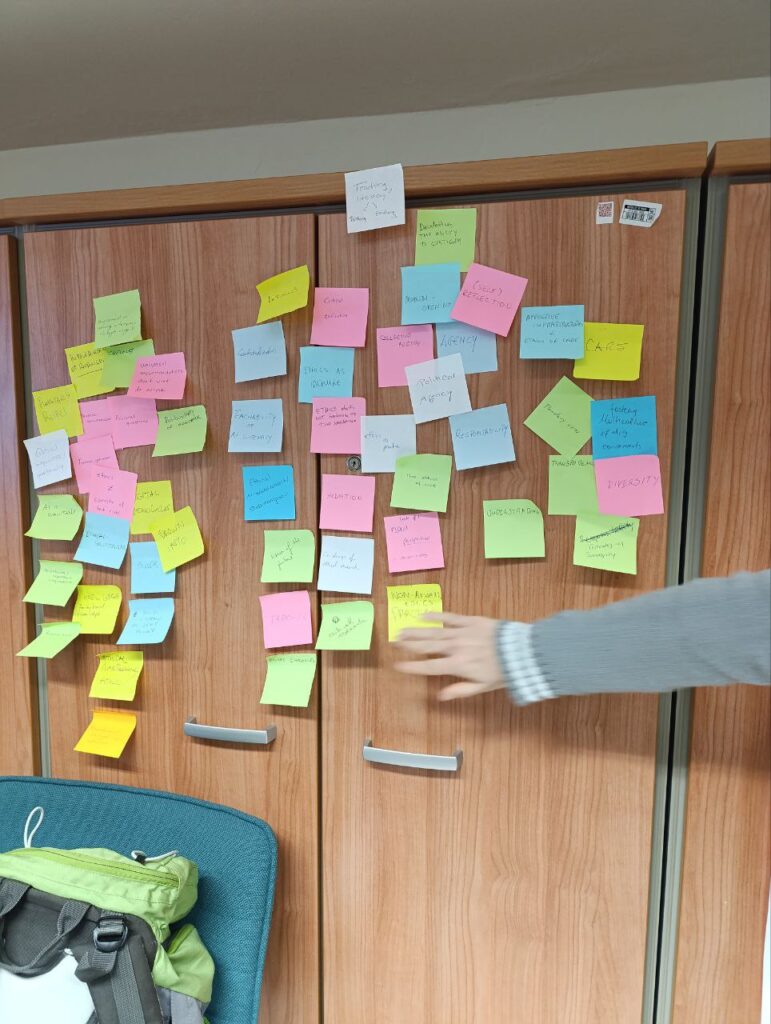
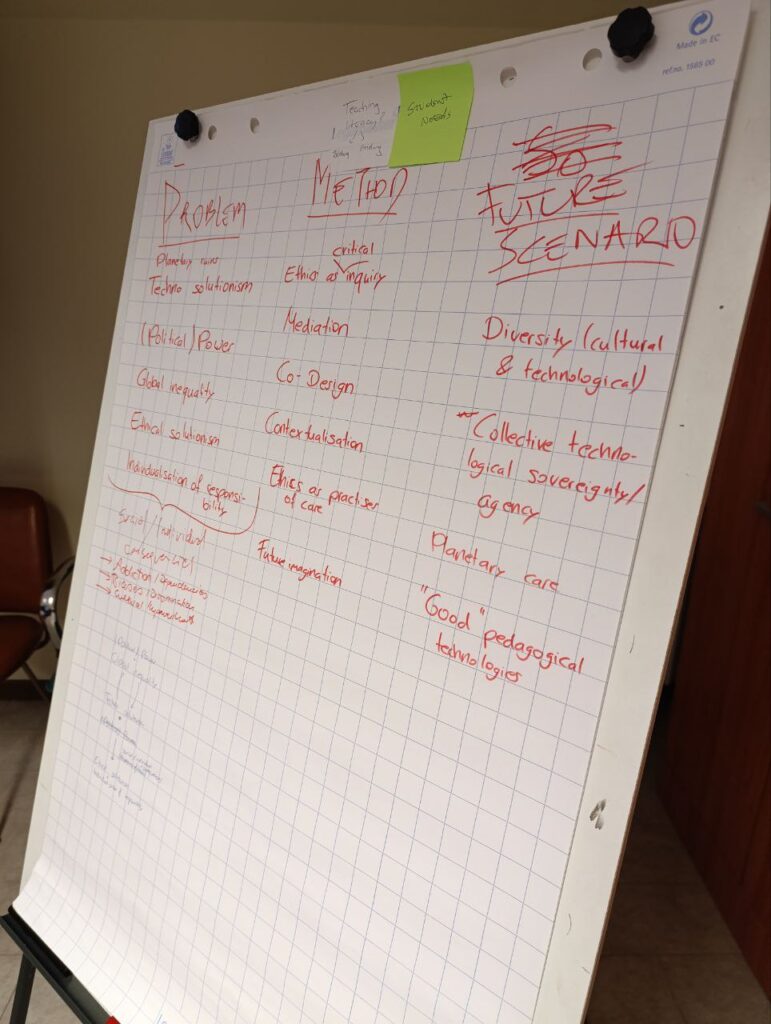
We began sketching our ideas, gradually shaping a representation of our current thinking. While there is still much work to refine and develop these insights, the foundation is strong, and the path ahead, though challenging, appears to us possible!
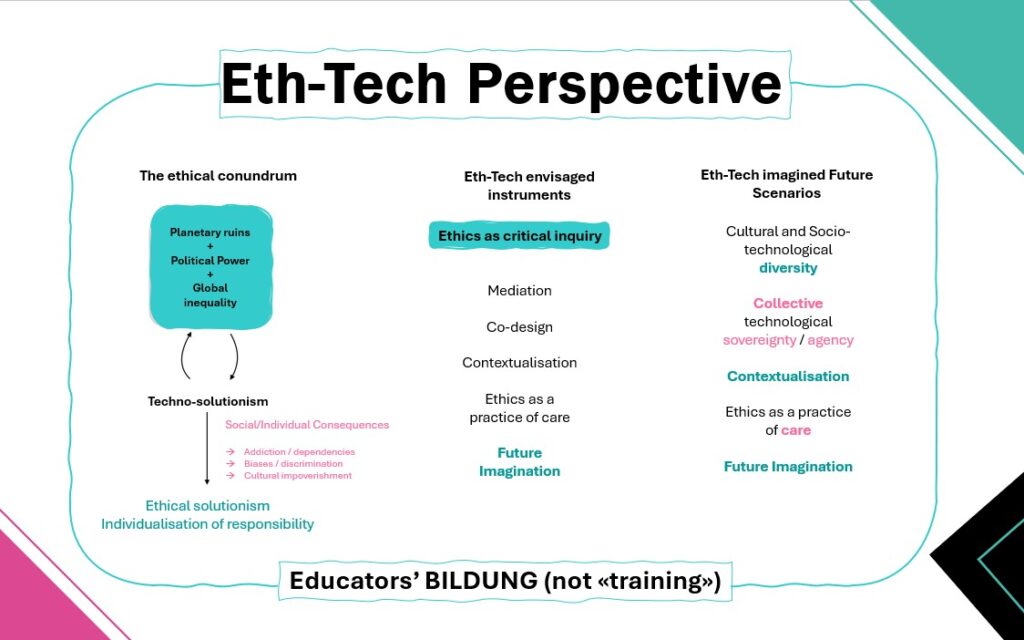
As the meeting wrapped up, there was a palpable sense of momentum. The group had not only explored the gaps in existing ethical frameworks but had also begun to chart a path toward a more applied and meaningful approach.
Over coffee and final reflections, one participant summed up the essence of their three-day journey: “Ethics is not just about knowing what is right—it’s about constantly questioning, adapting, and acting.” And with that, we closed the three working days, carrying forward a sense of what it could be, in the next two years, “anchoring ethics” in the lived realities of educational technology.
Leave a Reply